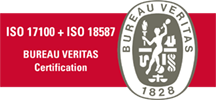Legal translation services that protect your business and your documents
Legal translation services must be precise, fast and admissible. This guide explains when you need certification or apostille, and how to choose a specialist partner.

Table of Contents
What legal translation services include (and what they don’t)
When people search for legal translation services, they often mix up three things: the translation of the content itself, the certification of the translator’s signature, and any legalisation such as an apostille. The translation step converts meaning with full legal nuance; certification and legalisation are administrative steps that make the work usable in a given jurisdiction.
At M21Global, legal translation is handled by our dedicated team, M21Legal, which focuses on statutes, contracts, litigation and compliance materials. For general information about our wider translation services, visit our service hub; but keep in mind that legal work requires specialist linguists plus a second legal reviewer.
For matters like bid terms, procurement documents or company policies, our accurate translations approach is applied with legal style guides, bilingual terminology and clause-by-clause checks. If you need broader context on why legal and business content affects international results, see our article on the role of legal and business translation.
Deep dive: aligning scope with your legal translation services brief
A clear brief protects timelines and outcomes. Share the jurisdiction where the translation will be used, any templates or boilerplate clauses, and whether certification or an apostille may be required. If your documents include public records or certificates, please read our explainer on what a legally certified translation is and our overview of document translation for business. These resources clarify when you can bundle documents, when originals or certified copies are needed, and how pagination, seals and annexes should appear in the final bundle.
When terminology is sensitive—think IP assignments, NDAs, shareholder agreements or warranties—provide reference agreements and drafting preferences. Doing so helps the translator mirror defined terms and cross-references exactly, which is essential in court-facing materials and cross-border filings.
How certification, sworn statements and apostilles work
In many countries, a translation can be certified by the translator with their signature witnessed by a lawyer or notary. In others, only sworn or publicly appointed translators may produce translations that authorities will accept. The EU provides helpful guidance on the circulation of public documents and multilingual forms via the European e-Justice Portal. For submissions to the UK authorities, the government sets expectations on translated supporting documents and acceptable declarations in its official GOV.UK guidance.
If your document will circulate internationally, an apostille might be necessary. We will confirm destination-country requirements and advise whether the certification should be issued in the country of translation or in the country of use. Our legal translation team coordinates the steps so you receive a single, ready-to-file pack.
Quality workflow: translators, reviewers and legal SMEs
Legal accuracy comes from process. Each project is handled by a specialist translator working into their native language, then reviewed by a second linguist, with legal subject-matter support as needed. For repeat clients, we maintain termbases and clause libraries to keep drafting consistent across matters.
We also apply ISO-aligned quality controls—terminology management, style sheets, revision logs and defensible audit trails. This lets in-house counsel or external counsel quickly see how a contested term was translated, and why. If you manage multiple languages, our translation services overview explains how we scale the same workflow to large case files and multijurisdictional projects.
Turnaround, formats and data protection
Speed matters, but not at the expense of precision. We scope timelines transparently based on word count, complexity, languages and required legalisation. We can process originals and certified copies, and we return deliverables in court-ready PDF bundles plus editable formats when appropriate.
Security is non-negotiable. Confidential files are handled under strict access control and NDAs. For sensitive exhibits or discovery, we support anonymisation, redaction and controlled glossaries. If you are early in vendor selection, our piece on accurate translations outlines how we reduce risk while keeping throughput high.
How to choose a provider (checklist)
Selecting a partner for legal translation services should feel like choosing counsel: check credentials, process and fit.
- Verify legal specialisation (not just generalist translation).
- Ask for a two-linguist workflow with documented revision.
- Confirm who signs certifications and where notarisation occurs.
- Ensure they understand apostille requirements for your destination.
- Request sample pages using your templates and clause styles.
- Look for published guidance, e.g., our article on the role of legal and business translation.
- Confirm data protection practices and secure file exchange.
- For mixed document sets, read our guide to document translation services.
Typical documents we translate
Our legal translation team handles contracts (MSAs, NDAs, license agreements), corporate documents (AoA, bylaws, minutes), litigation bundles (pleadings, witness statements, exhibits), regulatory filings, HR policies and compliance frameworks. For cross-border corporate work, we also translate powers of attorney, certificates of incorporation and board resolutions, coordinating certification and apostille as needed. When you need ongoing support, M21Legal provides steady capacity and consistent terminology across cases.
If you are planning a market entry, M&A, or a tender response, start early with a terminology plan and sample translation. This reduces rework and secures consistency between the translated text and the governing language version. Explore our broader translation services to see how legal, technical and financial experts collaborate on complex projects.
FAQ
Q1. When do I need a certified translation versus a sworn translation?
A certified translation bundles the translated text with the translator’s signed declaration and a witnessing stamp (often from a lawyer or notary). It is widely accepted for corporate filings, immigration, education and HR processes. A sworn translation, by contrast, is produced by a translator who has an official status under national law. Some authorities or courts require sworn translations for specific procedures.
If your document is a public record (e.g., birth, marriage, criminal record) or part of a court filing, officials may insist on sworn translations or on a certification model specific to that country. Start by checking the authority’s rules or speak to a specialist provider. We will advise whether certification in the country of translation is sufficient, and whether an apostille is needed for cross-border use.
Q2. How do apostilles relate to legal translation?
Apostilles don’t validate the translation’s content; they authenticate the signature on the certification for use between countries that are party to the Hague Convention. Depending on the destination, the apostille may be issued by a designated government office. The key question is which signature is being authenticated: the translator’s declaration, the lawyer/notary who witnessed it, or another official.
Our team clarifies this before you incur costs. If an apostille is required, we coordinate the sequence—translation, certification, apostille—so your pack is accepted the first time. For documents not covered by the Convention or where additional consular legalisation is required, we’ll outline the extra steps and expected timelines.
Q3. What should a legal translation brief include?
Provide the destination country, intended use, filing deadlines and any templates or reference agreements. Include definitions, exhibit lists, and drafting preferences (capitalisation of defined terms, numbering conventions, citation formats). If the source contains handwriting or stamps, supply clear scans or certified copies.
We also recommend listing the languages needed now and later. If you anticipate multiple jurisdictions, we can lock terminology in a termbase and produce pilot pages for legal review before scaling. That preparation prevents inconsistencies that can slow approvals or trigger questions from counterparties and authorities.
Q4. How fast can you deliver without risking quality?
Turnaround depends on document type, length, languages and legalisation steps. For urgent matters, we can staff parallel linguists with a single reviewer to maintain consistency, prioritising the sections you must file first. Clear, final source files speed everything up—last-minute edits create rework and can delay certification or apostille.
If you’re facing a strict filing date, tell us at intake. We’ll propose a schedule that protects quality gates (translation, revision, legal review) and any notarisation or consular appointments. Our goal is to deliver on time with defensible accuracy, not just speed.

